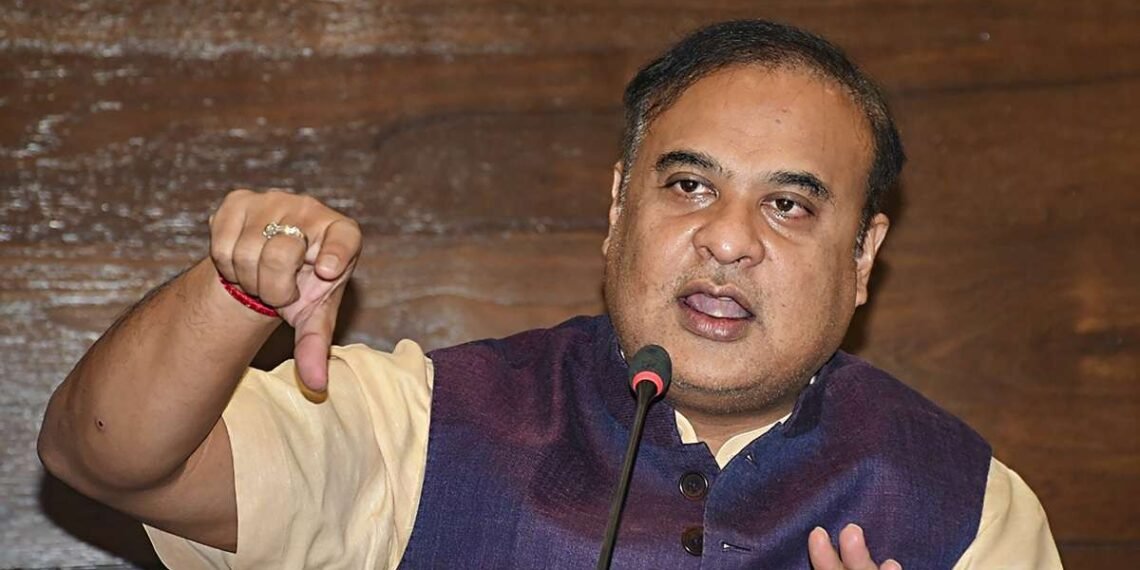The BPF’s victory is attributed to its strong regional identity and effective mobilization of tribal sentiments. In contrast, the UPPL and BJP, despite their alliance in the previous council, faced setbacks due to perceived compromises on tribal land issues and corporate land acquisitions, which eroded their support base.
BY PC Bureau
The 2025 Bodoland Territorial Council (BTC) elections in Assam have delivered a significant political blow to Chief Minister Himanta Biswa Sarma and his Bharatiya Janata Party (BJP). The Bodoland People’s Front (BPF) secured 29 seats, while the United People’s Party Liberal (UPPL) and BJP managed only 7 and 4 seats, respectively. Analysts attribute this outcome to widespread tribal discontent over land policies that favor corporate interests, particularly in the Bodo-majority regions.
READ: ‘I Love Muhammad’ Row: 22 Arrested After Bareilly Clashes
Corporate Land Allotments Fuel Tribal Backlash
One of the most contentious issues was the allocation of tribal land to corporate entities. In Kokrajhar district, the Assam government approved the transfer of 3,400 bighas (approximately 454.85 hectares) of land to the Adani Group for a 3,200 MW thermal power plant. This decision was made without consulting local communities, leading to allegations of violations of the Forest Rights Act and the Sixth Schedule of the Indian Constitution, which protects tribal land rights. Protests erupted in Parbatjhora sub-division, with villagers accusing the government of bypassing legal safeguards to facilitate corporate interests.
Himanta Biswa Sarma has suffered a major setback in the Bodoland elections in Assam.
Despite all the money and effort, the local party BPF has won the election unilaterally.
BPF – 29
UPPL – 07
BJP – 04
😂😂 pic.twitter.com/iDBKPPlqsJ— Manish Kumar ad 🇮🇳 (@ma427906099) September 27, 2025
Similarly, in Dima Hasao district, the government allotted 3,000 bighas of tribal land to Mahabal Cement Private Limited for a cement factory. The Gauhati High Court criticized the decision, questioning the rationale behind allocating such a large area of land to a private company. The court’s observations highlighted the tension between economic development and the protection of indigenous land rights.
Although the land was not directly allotted to any Adani company, ina such an polarised atmosphere of distrust an impression gained ground that Mahabal Cement Private Limited was a front for Adani, deepening tribal hostility toward the Chief Minister, who is known for his proximity with corporates.
Political Fallout and Implications for BJP
While the BJP may have contested the BTC elections independently, its prior alliance with UPPL in the outgoing BTC administration, led by Pramod Boro, worsened its standing. Boro’s perceived role in facilitating corporate land acquisitions alienated tribal voters, who saw the alliance as a betrayal of their interests. The BPF effectively capitalized on this discontent, positioning itself as the true defender of tribal rights and autonomy.
READ: Manipur: Two PLA Cadres Held in Assam Rifles Ambush Case
The electoral setback in the BTC is a significant blow to Himanta Biswa Sarma’s political standing. With Assam’s tribal population at approximately 12 percent and Muslims around 40 percent electorates, the BTC results underscore the importance of addressing indigenous concerns in the state’s political landscape. The Congress party, under Gaurav Gogoi, is expected to leverage this discontent to strengthen its position in the upcoming 2026 assembly elections.
The BTC elections serve as a cautionary tale for the BJP and its allies. The allocation of tribal land to corporate entities without adequate consultation has not only sparked legal and environmental concerns but has also led to a significant erosion of political support among indigenous communities.
Political analysts suggest that the outcome will now constrain Himanta Biswa Sarma’s approach in the Bodo-majority regions. Any further attempts to alter tribal land rights or push corporate interests in these areas could provoke another electoral backlash. To maintain political ground, Himanta may now be forced to avoid disturbing tribal communities altogether, while simultaneously escalating anti-Muslim rhetoric elsewhere to consolidate his voter base.
As Assam approaches the 2026 assembly elections, the BJP must reconsider its policies to ensure that economic development does not come at the expense of tribal rights and autonomy.













